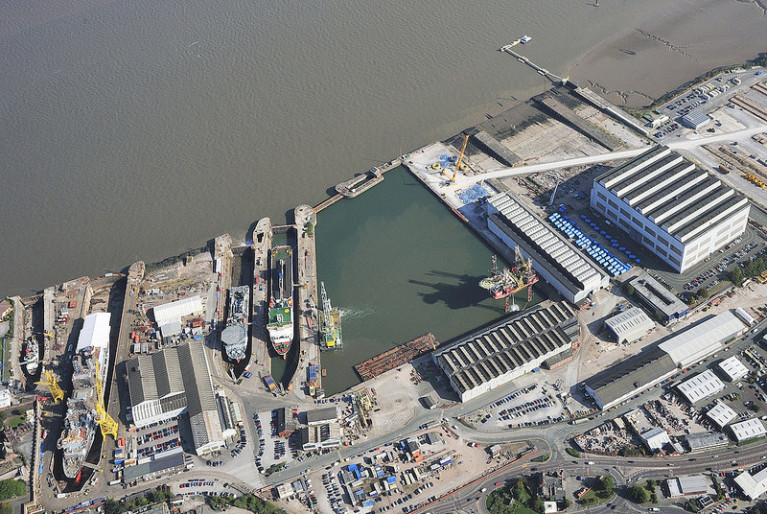Displaying items by tag: Busy Division
Merseyside Shipyard Cammell Laird's Busy Commercial Division Enjoys End of Financial Year
Merseyside shipyard Cammell Laird continues to enjoy a busy 2022 with a range of commercial vessels visiting its facilities for extensive programmes of works.
In the same month that Prime Minister Boris Johnson and Defence Secretary Ben Wallace visited the Birkenhead based shipyard to unveil the new National Shipbuilding Strategy Refresh, Cammell Laird completed several dry dockings and ship repair projects.
Ro-Ro passenger ship MV Hebrides departed no. 6 drydock on Wednesday, March 21 following an extensive overhaul and repair programme, which included the replacement of its sewage treatment plant, and the replacement of its fast rescue boat davits. The vessel is operated by CalMac and connects the Scottish isles of Skye and Harris.
The Stena Adventurer, a Ro-Pax ship owned by Stena Line, has returned to Cammell Laird for a large package of repair and overhaul works, which included the application of a new paint system. The ferry is one of two vessels, which operates on Stena Line’s Holyhead-Dublin route and makes two crossing per day. The ship has a maximum capacity of 1,500 passengers and 500 cars.
LM Constructor, a working barge, arrived in no. 5 drydock on Friday March 25th for five-year survey works. Built in the Netherlands in 1983, LM Constructor is a general-purpose vessel suitable for a wide range of inshore projects.
The Belgian tug Zeebrugge, is the latest vessel to depart Cammell Laird following a 16-day docking period for repair and overhaul works.
In January, Commissioners of Irish Lights vessel the ILV Granuaile docked at Cammell Laird. The multifunctional vessel, which services offshore buoys and is used for search and rescue missions, underwent general drydocking works for maintenance and repair including painting. (See CIL's Scottish counterpart vessel NLV Pharos at H&W Belfast).
Another tug, Svitzer Milgarth also docked in January for general drydock works including port and starboard aquamaster shaft seal removal, and general inspections.
The third CalMac vessel of the season, MV Clansman arrived in no.6 drydock in January also, for an extensive programme of overhaul and repair works including the removal and replacement of the sewage treatment plant and tail shaft works.
Mike Hill, Managing Director at Cammell Laird said: “It has been fantastic to see all of our ship repair facilities being used during this busy period".
“The recent works we have carried out highlights the demand of Cammell Laird and its highly skilled workforce. We look forward to welcoming our returning and new customers to the facility over the coming months.”




























































